Sound of Metal has been a long time coming. Director and writer Darius Marder faced years of delays ranging from casting changes to the whole world shutting down. Was it worth the wait? Well, six Academy Award nominations including Best Film certainly suggest it was.
The film follows Riz Ahmed and Olivia Cooke as Ruben and Lou, band members and lovers living the ideal rock'n'roll lifestyle. But when Ruben starts to suffer major hearing loss, it's clear their co-dependent relationship is built on shaky foundations. To avoid falling back into addiction, Ruben must isolate himself in an AA community for deaf people.
It offers an rare insight into deaf culture, playing with sound in a way that both disorients and enlightens. Combined with some stellar performances, Sound of Metal has understandably become the dark horse of awards season. theartsdesk's own Owen Richards spoke with Darius Marder about the film's long development.
OWEN RICHARDS: The original idea for Sound of Metal came from Derek Cianfrance. What was it about his pitch that sparked your imagination?
DARIUS MARDER: It wasn’t so much a pitch or an idea. It was actually a documentary Derek was shooting 13 years ago about this band Jucifer, who are a two-person noise band very much like Sound of Metal’s Lou and Ruben. They’re the loudest band on the planet and travel endlessly in a Winnebago. So, this was the direct lineage of Lou and Ruben’s construct.
I met Derek at a school picnic for our kids actually, and within 30 seconds of meeting, we were talking about this doc. We just clicked and ended up writing together. I was still obsessed with this thing he was shooting. I cut the footage and while I was doing that, I got attached to this idea, less about the characters and more about this notion of co-dependence. This visual representation of relationship and sound, and this concept of a movie about transition. This chrysalis almost, this move from one thing into another being.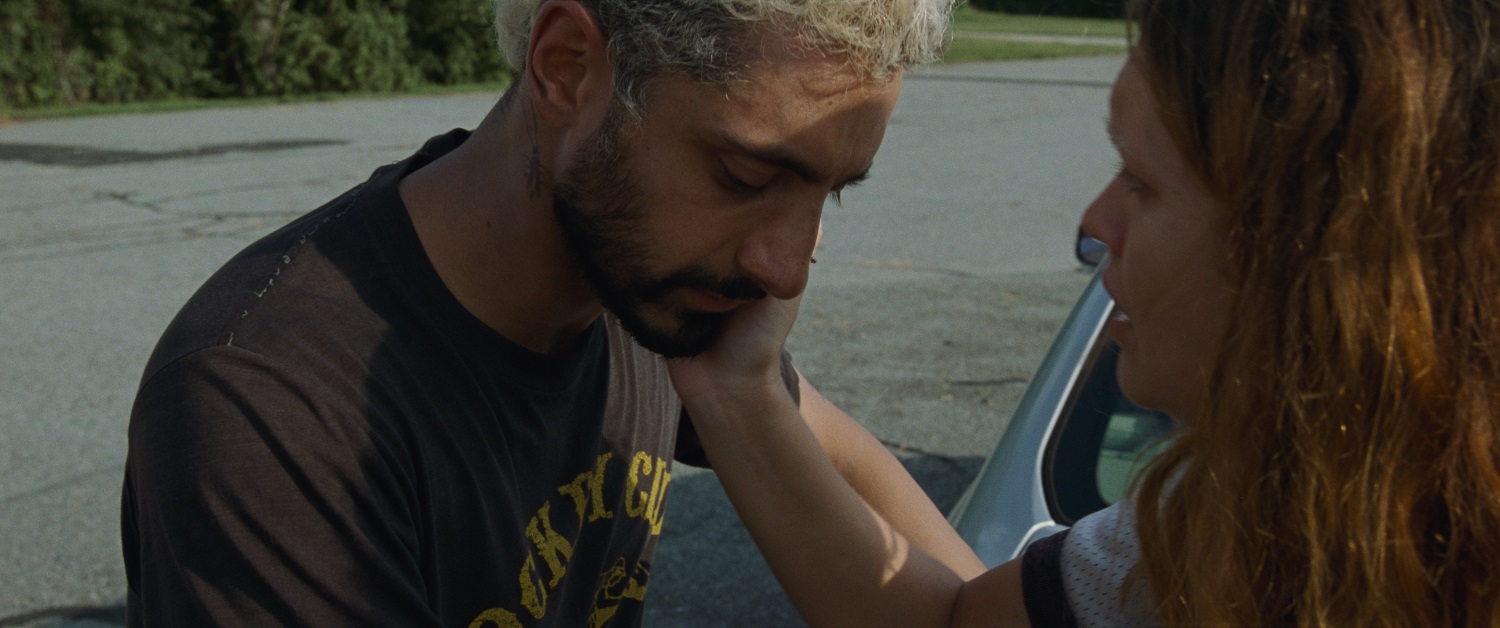 The idea of sound and deafness was already there. Derek was actually a metal drummer himself and had experienced some minor hearing loss. Then at one point, he actually asked me if I wanted to finish the doc and I said no. I love it but it’s not what I want to make. I’d had this idea of sound perspective that had come from playing with some of that footage. Eventually, I just built it from the ground up and created these characters that needed to be what they are. They were very personal to me.
The idea of sound and deafness was already there. Derek was actually a metal drummer himself and had experienced some minor hearing loss. Then at one point, he actually asked me if I wanted to finish the doc and I said no. I love it but it’s not what I want to make. I’d had this idea of sound perspective that had come from playing with some of that footage. Eventually, I just built it from the ground up and created these characters that needed to be what they are. They were very personal to me.
I was surprised by how affected I was by the film. I played music for many years and quite a few of my friends have had hearing issues. How did the film develop from a story about a band into a story about deafness?
It’s more of a sound story than it is about music. I didn’t want to use music just for the sake of music. It’s there for the sake of a sonic experience. Every scene where you have music playing, it's not just a performance, those are scenes.
Like the opening scene is a scene of a couple. If it were another couple, they might be in their living room having a discussion, but in this case it’s Lou and Ruben on stage and you learn about who they are as a couple. What their power dynamic is.
You also learn about the perspective of the film: who are we watching this through? That language is very diligent. There’s no wide shots, there’s no cutaways to the crowd or show off what they’re doing. It’s not about that. It’s actually a scene between two people. It’s all in service of this sonic process that’s going to happen.
But interestingly, yes deafness is at the heart of what this movie is, but there’s a bit of a red herring. When that deafness occurs, the film feels very much like a horror movie. It’s very frightening. But that monster, that scary thing, isn’t really the deafness.
That hand off was really exciting narratively for me and my brother. Undermining expectations of what you think you’re watching. You think you’re watching a film about a guy going deaf but actually Lou isn’t really upset that Ruben’s deaf. She’s upset because she can see what that’s going to mean for Ruben. She knows what’s really at stake. It’s not about hearing. It’s about addiction. And that’s a life or death situation.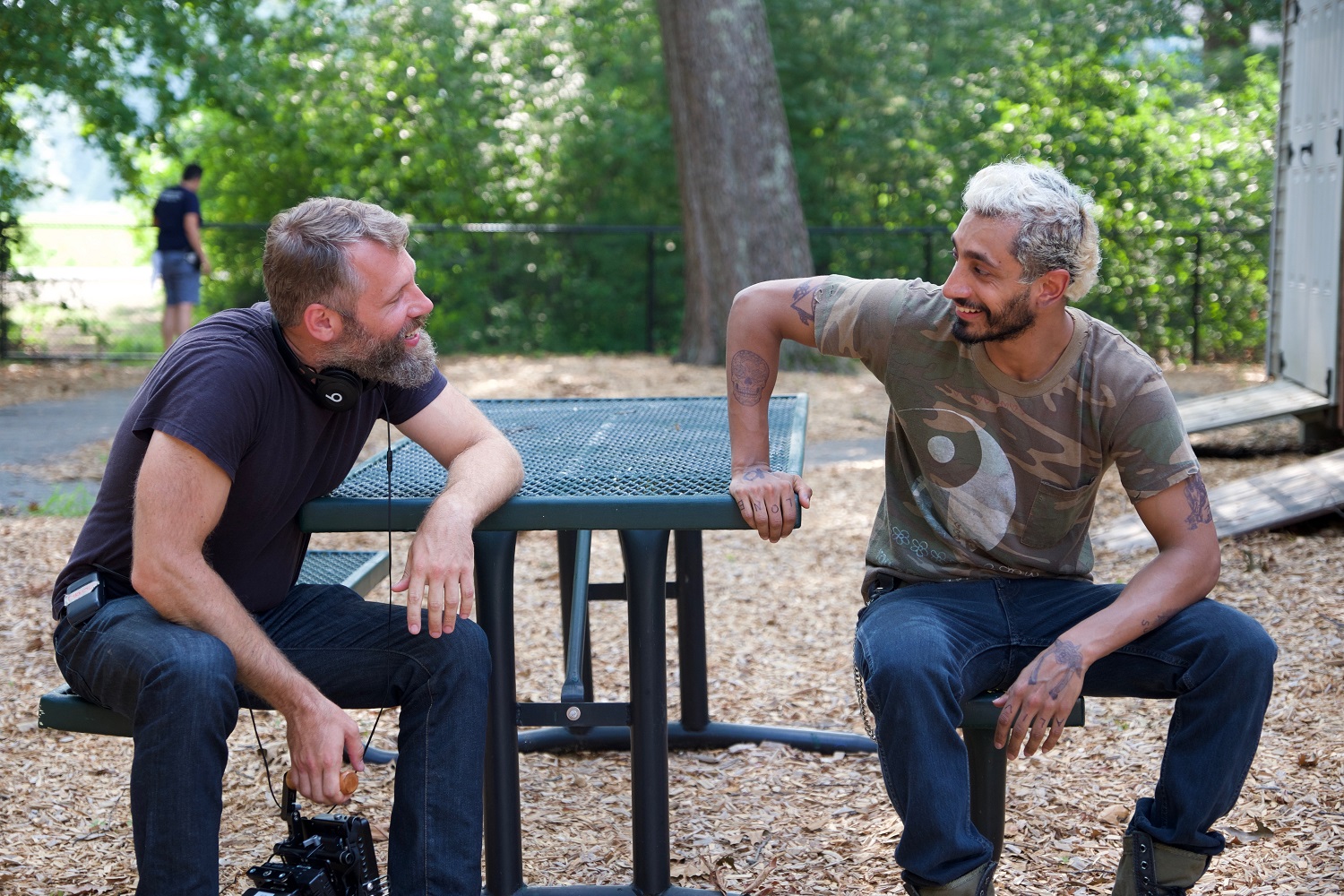 So, it’s a truly unusual hand-off in that moment. You have a major crisis, this thing deafness, and then you realise there’s something else. That’s what drives them to that community. It’s not really deafness. Then, to allow the audience and Ruben to peak into deaf culture, a culture we don’t often see into, that’s a wonderful byproduct of that journey.
So, it’s a truly unusual hand-off in that moment. You have a major crisis, this thing deafness, and then you realise there’s something else. That’s what drives them to that community. It’s not really deafness. Then, to allow the audience and Ruben to peak into deaf culture, a culture we don’t often see into, that’s a wonderful byproduct of that journey.
I spent a lot of time wanting to learn as much as I could about deaf culture and let them represent themselves, essentially. But it’s in service of a story that’s actually more about addiction.
I was really impressed by how you towed the line between making the oncoming deafness a terrifying prospect, but never portraying deafness as a negative thing. How important was getting that balance right, especially when deaf culture is rarely shown on screen?
It was so incredibly important. Most of us don’t understand the idea of deaf culture. We don’t grasp it. We think of deafness as a physical construct. We even talk about it as a disability. Once you hangout with deaf people, you understand it’s just a different ability. And that’s not being PC, that’s straight up. Deaf culture is defined by that physical construct of deafness but it’s a culture. It’s a language because of that. It’s a way of being and breathing every day because of that. That’s been around forever.
I was very interested on how we as an audience can go through the process of learning that Ruben goes through. We come in with our own able-bodied, pre-conceived notions, and maybe even our desire to quickly fix that thing: “oh shit, there’s a fix? Let’s do it, let’s do it, let’s do it!”
Maybe there’s a way we can watch this film that recognises that sickness, that desire to fix without looking within, is perhaps a societal disability. We’re all implicated. That was really important to me.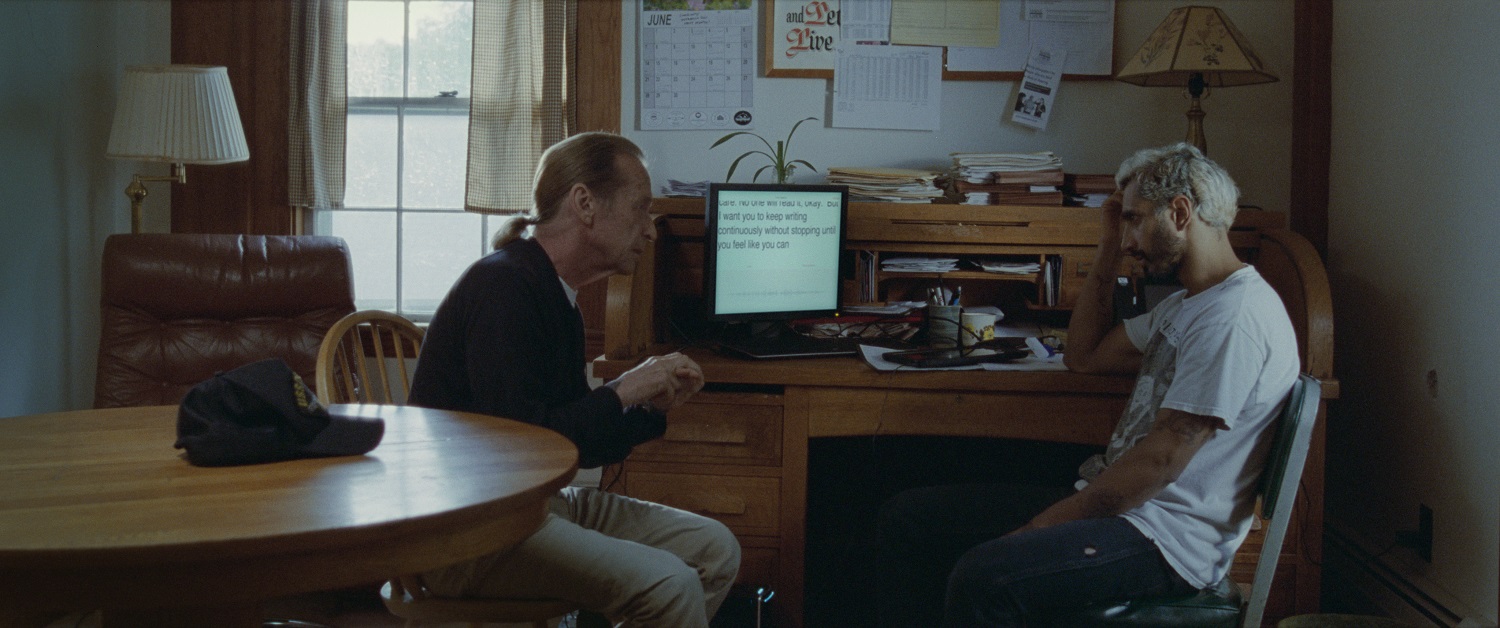 That definitely comes across in the film. I understand that Paul Raci (pictured above left) was raised by deaf parents, and his performance comes across as so authentic and moving because it comes from experience. How important was it to have people from the deaf community on screen telling their own story?
That definitely comes across in the film. I understand that Paul Raci (pictured above left) was raised by deaf parents, and his performance comes across as so authentic and moving because it comes from experience. How important was it to have people from the deaf community on screen telling their own story?
I wouldn’t have made the film any other way, and I can prove it by the fact that I didn’t for many years! That’s something that can transmit through the screen that we can feel. All good acting, without exception, is the experience of an actor connecting with something authentic in themselves. We’re never moved by pretend, ever. We’re moved by that connection that actors find. And really amazing actors can find a well of authentic experience and can connect with that.
For Paul, I wouldn’t have ever had someone pretend to be related to deaf culture. Paul is a CODA [a child of deaf adults] and he didn’t speak English until he was six. It’s something we don’t understand. It’s fascinating.
Paul is from deaf culture, that’s his culture. He’s not hearing and he’s not deaf. He’s a CODA. I came to understand it more and more, and I’m just fascinated by it. Paul’s a real embodiment of this reality that deaf culture isn’t just about deafness.
So interestingly, Paul’s character Joe is late-deafened. He went deaf while fighting in Vietnam. And, by the way, Paul fought two tours in Vietnam himself, which is a remarkable coincidence! So Paul, as a hearing person, is actually much closer to deaf culture than the character of Joe. Joe is physically deaf but he’s not culturally deaf.
Paul actually had to dumb down his ASL to speak as a not culturally deaf person would. Deaf people really understand immediately who they’re talking to and whether that person is culturally deaf, or whether they studied ASL in high school. They know.
In the same way we can recognise an accent?
Exactly. The only difference is, to take it further than an accent, the language itself is so nuanced. In order to transmit the sophisticated thoughts that are being exchanged, it’s not just accent. An accent show the circumstances of where you come from, but the nuance of language transmits the depth of your sophistication and your understanding of how to communicate. That’s a deeper reality.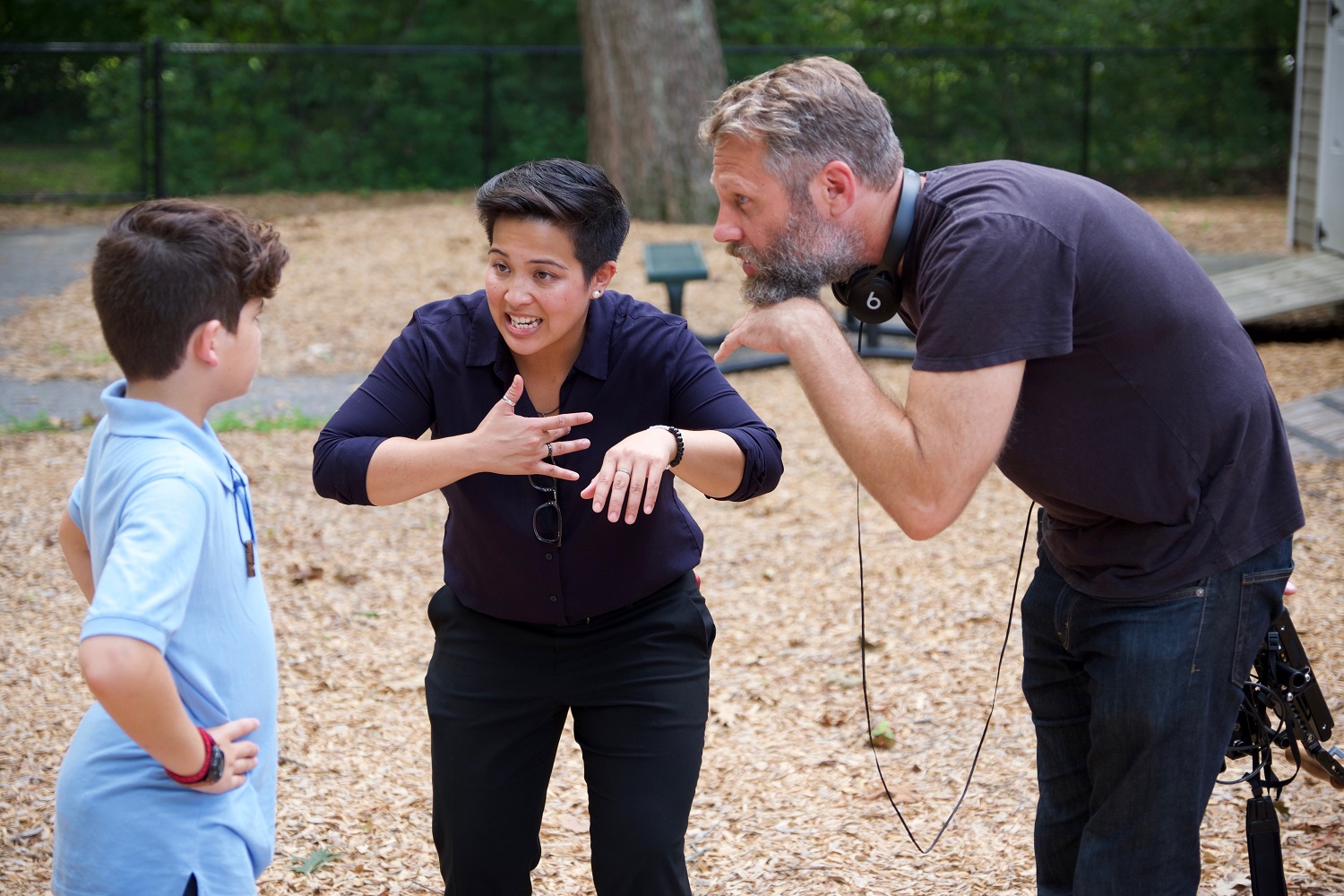 So for Paul, it’s his first language. Some people really don’t grasp this and fixate on the idea that Paul’s a hearing person. But they just don’t understand the umbrella of deaf culture and where CODAs fit underneath that. I couldn’t have possibly have found anyone else to play that role, and the fact that Paul and I came to each other is so extraordinary, I can’t even believe it.
So for Paul, it’s his first language. Some people really don’t grasp this and fixate on the idea that Paul’s a hearing person. But they just don’t understand the umbrella of deaf culture and where CODAs fit underneath that. I couldn’t have possibly have found anyone else to play that role, and the fact that Paul and I came to each other is so extraordinary, I can’t even believe it.
It’s not just he served two tours and speaks ASL and the rest of it. It’s the fact he’s a fucking amazing actor. He’s been an actor for 40 years and he’s outrageously good.
And it comes across in the film. It’s an incredible performance. And speaking of performances, I recently spoke to the Mogul Mowgli director Bassam Tariq about how he and Riz Ahmed developed his character together. Did you and Riz have a collaborative approach to developing the character of Ruben?
Well, I had been casting this film for about four or five years before I met Riz, so I had a lot formed already. But when Riz came on board, it was the first time I met an actor where I knew we had a partnership. I knew we were going to set out and do something brave and unchartered and ridiculously crazy.
Riz moved to Brooklyn a few blocks away from me. We spent that time together and it was both emotional. We went to AA groups, NA groups, Co-dependents Anonymous, working physically and working out. Committing to this physical process. Learning ASL every single day. Learning drums every single day. Can you imagine? That’s intense.
But all that time, not allowing it to be a cerebral thing. Really giving in to it being a physical and emotional thing. That was a new process for Riz and I was so excited about bringing a character to the set that you can really play with and trust in. Again, it wasn’t pretend. It was in your bones.
Riz really went there and it was incredible. It almost never happens. It’s an authentic, artistic experience. He’s very special and I can’t stress it enough. I can tell you from trying to make this movie for ten years! Not many actors will do that. They’ll say they want to do it, but that’s very different from actually doing it.
By the time we hit set, he and I had an incredibly deep connection together. He trusted me from the first moment we started and he had to. You can’t do this if you don’t trust the director, and I couldn’t do it if I didn’t trust him. It was such an act of faith.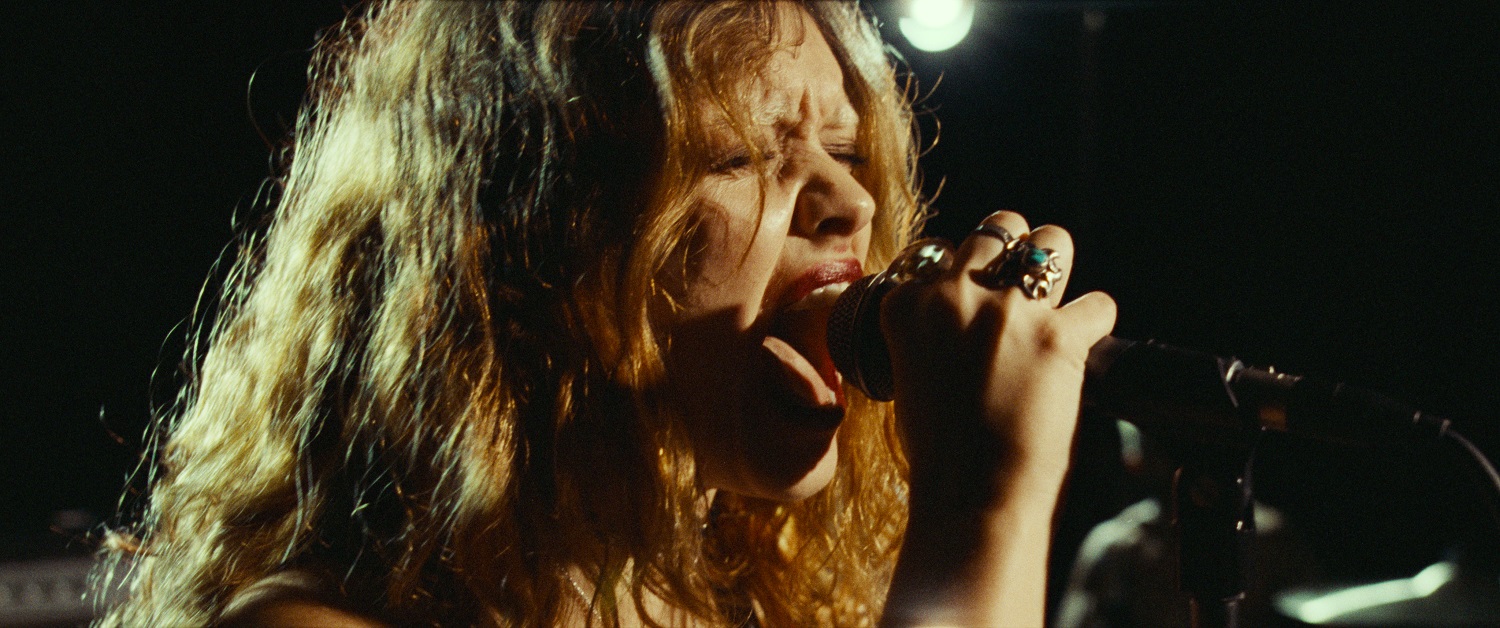 And Olivia Cooke went through a similar process. Less than Riz, but months of learning stuff. She also did an incredible process, and interestingly, Riz and Olivia formed a relationship around music. They had to practice music together and I didn’t even have to tell them “here’s what your relationship is about.” I knew their relationship would form through music and that’s the beauty and magic of process.
And Olivia Cooke went through a similar process. Less than Riz, but months of learning stuff. She also did an incredible process, and interestingly, Riz and Olivia formed a relationship around music. They had to practice music together and I didn’t even have to tell them “here’s what your relationship is about.” I knew their relationship would form through music and that’s the beauty and magic of process.
So, by the time we hit set, we were a family. We were really able to fully explore the impulses of these characters. And that’s where these really transcendent moments can come from, when they are actually impulses.
So it was a set that wasn’t rigid to the script? They could explore their characters?
Most of it is from the script, but not everything. There were moments, like when they’re travelling on the road. Those guys just riffed for hours.
Those scenes seemed like they could only come from long conversations. They jumped around in topics so much.
That was the essence of the experience of being on the road. In one very efficient moment, we understand what they do every day. That had to be like that. But to actually shoot that was really hard. I had to steal the airstream…but that’s another story!
I setup the whole shoot chronologically because I think it’s one of the most powerful things you can do for an actor, especially for a movie like this. You don’t want to go from “well, now you can hear. And now you can’t hear. And now you can hear again.” I was never going to do that.
And then I allowed a lot of room for impulse because that’s what so important. It’s a highly structured story, but if an impulse arose, it was always welcome. These guys knew who their characters were.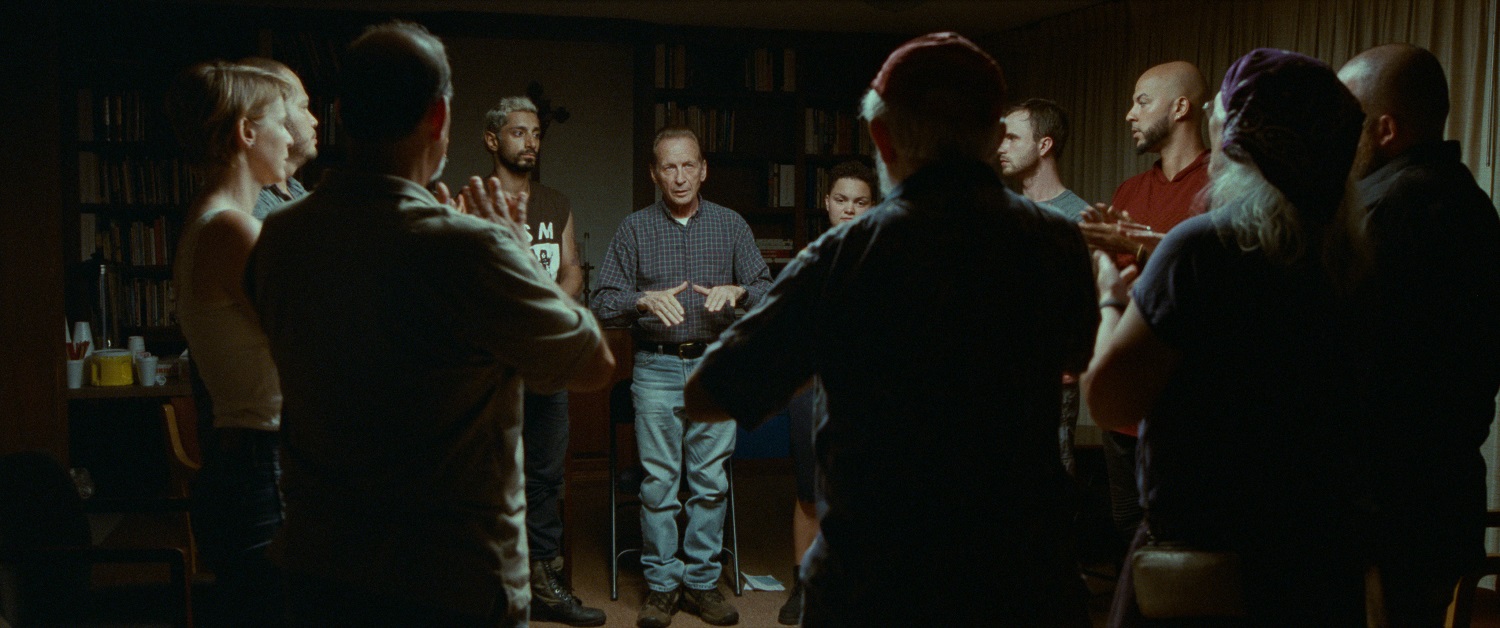 The film is going out with captioning as standard. Do we need to normalise accessibility in cinema?
The film is going out with captioning as standard. Do we need to normalise accessibility in cinema?
There’s a simple truth. If films are not open captioned, deaf and hard of hearing people cannot come. That’s not 10-15 people. That’s millions of people. I’m open captioning this movie and most people said I was crazy. People said they wouldn’t buy the film. This was not a popular idea.
It’s such an insult. Especially if you’re going to make a film with the deaf community in it and then not open caption it. This has happened over and over. It has only happened. It’s an insult. It’s as insulting as not putting a ramp for people in wheelchairs. There’s no excuse for it.
So, this is open captioned because there’s deaf community in the film, but that’s basic. But what about every other film? We’re all perfectly comfortable because we don’t have to deal with this. But that’s what this film asks us to consider.
I screened this film in Toronto for the first time and there were a hundred plus deaf people in the audience. When those scenes that aren’t subtitled for hearing audiences happen, you’d hear all this laughter from the deaf community because for once, hearing people were in the minority. We get to experience that in this film, what it is to be in the minority. And maybe reflect a little on our incredible comfort that we always have the opportunity to access everything, but for so many people, they never do.
I think we all need to take a good hard look at captioning. We have close captioning in some theatres at some times, but is that enough? I would say no. Films should probably all be open captioned.
- Sound of Metal is available on Amazon Prime Video from April 12th and released in cinemas from May 17th
- Read more film interviews and reviews on theartsdesk














Add comment